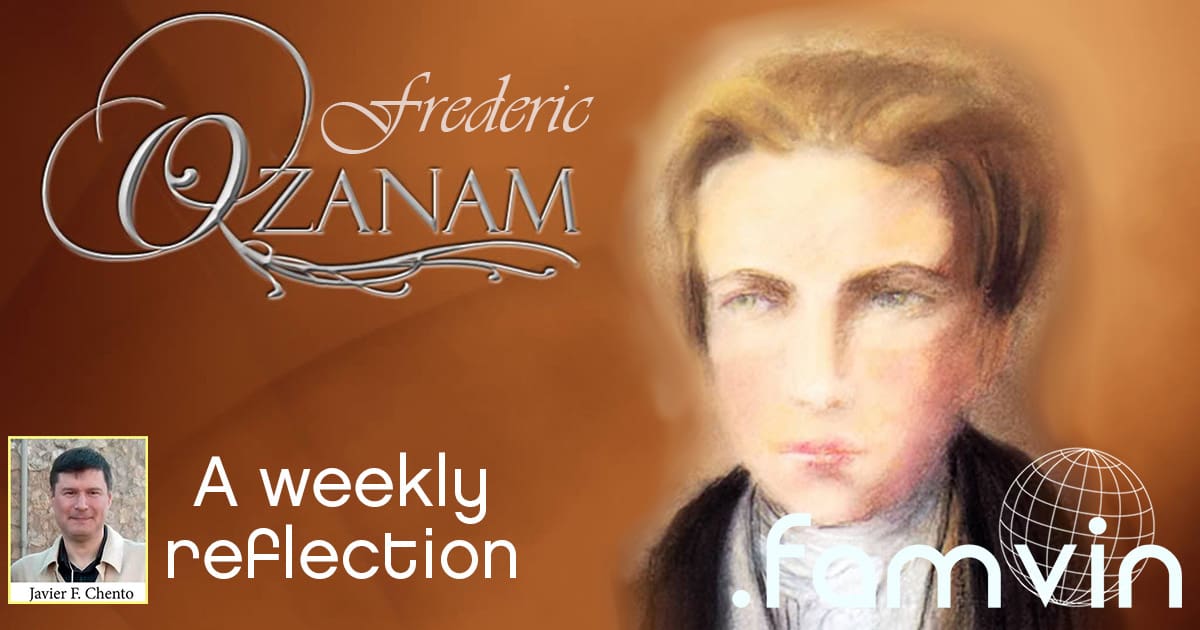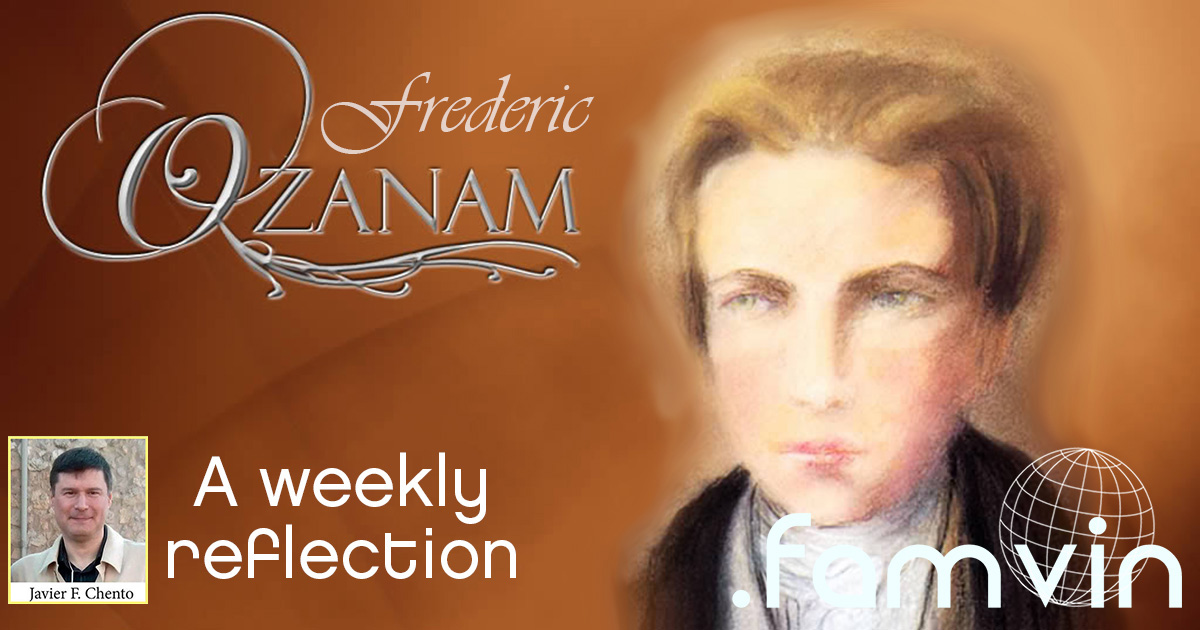There is no “You” without “Me,” nor “I” without “You” • A Weekly Reflection with Ozanam
The “I” is truly importunate and hateful, that selfish solitude does not suit the needs of my character; I need the moral accompaniment of the family, the feeling of the “We.” You are good and charitable in allowing it, and I will take you for your word. From now on we will say “We”; there will be no more isolation; and it will no longer be the mere presence of the memory of one in the thought of the other; it will be the complete merging of two destinations. The hand that rests so sweetly on my heart to give it strength at the dangerous moment of my beginnings, will hang on my arm in the difficult moments, in the slippery events of life, and where the steps of one could falter, the steps of both will support each other.

Frederic Ozanam, Letter to Amélie Soulacroix, March 6, 1841.
Reflection:
- The courtship letters between Frederic Ozanam and Amélie Soulacroix are fascinating. The two fiancées, since the commitment was formalized on November 24, 1840, hardly had the chance to socialize in person, since on December 14 of this same year Frederic had to leave for Paris — leaving his bride in Lyon — to begin his work as Assistant professor of Foreign Literature at the University of La Sorbonne.
- From then until the date of the wedding, on June 23, 1841, only once Frederic was able to return to Lyon, during the Easter holidays.
- The fiancés deepened their relationship almost exclusively by letter. Let’s remember that this was the only way of communication at a distance; it would still be decades until the first phone calls were made.
- In this romantic correspondence, Frederic concealed from Amélie the problems he faced in Paris. However, he commented them to Alphonse, his brother priest, and to his future father-in-law, Jean-Baptiste Soulacroix. Amélie found out about his labor and economic difficulties, and reproached him by letter for his lack of confidence in her. Amélie showed a strong and determined character, accustomed to dealing with difficult situations and facing problems with courage. Thus, in a letter addressed to his fiancée, she said: “This time I will not tell you, sir, that your letter has enchanted me; I expected it very differently. I do not complain about what was in it, but about what was not. It is because I know that you have problems, disappointments, and you do not talk about them. I thought you would trust me and you do not say anything. Acting like that, without realizing it, you are deceiving me. You make me see now the pleasant side of life and hide the rest. So will be, later on, when you will let me know also what is painful. I would be disappointed with you if I had not been educated by parents who got used to me, from an early age, to share all their troubles, to know all their problems” (letter from Amélie Soulacroix to Frederic Ozanam, February 28, 1841).
- Although Amélie understood Frederic’s intention not to upset her “talking to her about business,” she told him clearly: “I will talk about business, about our business.” She never thought that “money brings happiness,” and she preferred to “share everything so that we can really talk about us” (quotes from the same letter). Naturally, Frederic apologized and acknowledged that a shared burden was lighter, in a long letter of March 6, from which we have pick Frederic’s text.
- Frederic rectified and committed to treat his future wife with respect and equality, communicating all news, good or bad. Fifteen days before their wedding, Amélie would remind him again that, at the moment of final commitment, they will say “there is no ‘you’ without ‘me’, nor ‘I’ without ‘you'” (letter from Amélie Soulacroix to Frederic Ozanam, May 28, 1841).
- Amélie had a great influence on Frederic’s way of thinking. In her he found, in addition to his great love, a companion who would support him on every occasion. In a time when the woman was undervalued and dependent on man (her father first, her husband later), today we discover in their equal relationship the urgent need for women to occupy the position that corresponds her: to the man’s side, not behind.
- Today, there is still much to be done on this issue, both socially and ecclesially, but we must work for this reality to be complete as soon as possible.
Questions for dialogue:
- In my environment, is the treatment of women the same as that given to men? What needs to be improved in this aspect, at the family, social, ecclesial levels …?
- If I am married: are family responsibilities shared equally between husband and wife? If I’m not, how has this been experienced in my family, among my parents, for example?
- What position does the woman occupy in our Vincentian groups? Do they have the same responsibilities as men?
Javier F. Chento
![]() @javierchento
@javierchento
![]() JavierChento
JavierChento








0 Comments